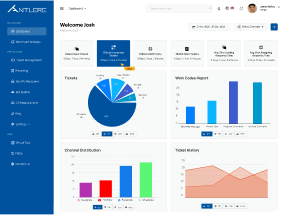Cost Comparison: In-House vs Outsourced BPO for US Startups
What is the BPO Industry and Why Does It Matter?
Building a startup is like racing a rocket to the moon with limited fuel and no room for dead weight. To stay fast, focused, and financially smart, founders are turning to a powerful ally: Business Process Outsourcing (BPO). By handing off non-core operations to specialized BPO partners, startups unlock a rare advantage of access to world-class talent, streamlined processes, and scalable support without the burden of building everything in-house. It’s not just about saving money; it’s about gaining momentum exactly where it matters most.
BPO outsourcing companies provide specialized talent, infrastructure and flexibility for managing customer support, technical assistance, lead generation or back-office operations. And that brings us to the critical question: what does it cost to operate in-house compared with outsourcing? Here is an article about the BPO cost comparison USA startups should take an account and also the operational trade-offs and strategic advantages to seek when engaging a BPO company.
BPO services provided by the third-party vendors to support and manage multiple business functions under the rope of BPO industry. The services provided can be broadly classified into front-office (i.e. customer support, sales and marketing) and back office (i.e. HR, payroll, IT support and finance). When it comes to industry- or business-specific solutions, the top BPO companies also provide experience that may be in short supply at start-ups.

BPO is not simply a money-saver to most startups. It’s about scaling faster, tapping into the world’s talent, and directing in-house resources to innovation. The top BPO firms today spend millions on new technologies – think AI, analytics, CRM platforms and cloud computing – making enterprise-grade tools within reach even for the smallest businesses.
Statista indicates that the worldwide BPO market could exceed $525 billion by 2030 due to this need for operational effectiveness, with the United States still being the largest customer for externalized solutions.
In-House vs Outsourced: A Detailed BPO Cost Comparison (USA Context)
Startups must consider the full range of costs associated with both types of models to make an informed decision. Here is an expense-by-expense breakdown that starts to help founders understand what hiring in-house costs versus hiring a BPO service provider and the common costs that are often overlooked.
1. Salary and Labor Costs
U.S salaries almost expect hiring in-house staff. Glassdoor (2024) states that an average customer service rep makes $45,000 to $65,000 in a year. According to Patrick Freedman, managing partner at Shorecrest capital, if you include taxes, medical benefits, bonuses, and U.S. labor laws compliance, the cost per employee may be 30% higher.
Telemarketing outsourcing companies that operate from places such as the Philippines, India, Colombia, or South Africa provide complete teams for a lower price– $8,000 to $20,000 per agent per year (depending on skill and level of service). This refers to hourly rates that are commonly inclusive of the costs of employee benefits, training, and management overhead.
2. Infrastructure and Operational Expenses
They also have to think about how much workspace, equipment, software licenses, and IT support costs. Building an in-house contact center BPO-style operation requires significant capital expenditure of $5,000 to $15,000 per employee per year in the U.S. alone. On top of ongoing costs such as internet, utilities, hardware replacements, and cybersecurity measures.
When you opt for a BPO company, all of these infrastructural expenses are passed on. Cloud Engineer: The provider group that is accountable for physical space, computers, telecom systems, CRM tools, and security framework. This infrastructure enables startups to not have to worry about CapEx and to instead pay a predictable, monthly OPEX fee.
3. Recruitment, Training & Attrition Costs
Although finding and retaining the right talent is never an easy process, especially in customer-facing roles. According to the Society for Human Resource Management (SHRM), the average cost to recruit and train a new position in the U.S. can be $4,000 or more. And that does not even factor in the long ramp-up time to regain lost productivity, and the amount of turnover in support roles is often an issue.

On the contrary, more often than not, BPO Service Providers have staff available, pre-trained in the particular domain. Third, many of the leading customer service outsourcing companies will implement ongoing training and performance management to ensure that quality expectations are achieved at a level that does not require internal resources.
4. Management and Oversight
On-site work necessitates management, evaluation, scheduling, and quality control, which requires extra staff. Startups might end up hiring team leads and middle managers just to keep the operations dyne.
To resolve this issue, often BPO firms include dedicated team leaders and QA staff in their offerings. Regardless of whether it is BPO customer service, back-office, or technical helpdesk functions, the BPO provider takes care of productivity, quality, and escalation levels. Some even offer dashboards and reporting tools for real-time management.
In-House vs Outsourced BPO: A Cost Breakdown
Here’s how the cost structure typically compares for startups operating in the U.S:
[table id=2 /]
Benefits of Partnering with BPO Firms Beyond Cost
While cost reduction remains the most attractive feature of outsourcing, startups gain access to a wealth of additional benefits:
1. Global Talent & 24/7 Support
The primary benefit of hiring a business process outsourcing (BPO) call center is to provide 24/7 customer service without incurring overtime or night differentials. BPOs in Asia or LATAM work out of different time zones, which gives you the chance to cover every hour of the day. Some even provide multilingual support, a huge plus if you plan to scale your startup internationally.
2. Faster Time to Market
It is time-consuming to build an internal team from scratch. Many of the leading BPO providers can onboard your teams in 1–2 weeks, compared to the 4–6 weeks of hiring and on-boarding that this process usually takes. This flexibility can make all the difference when customer expectations are constantly changing within your industry.
3. Focus on Core Activities
Outsourcing repetitive or low-impact tasks allows startups to center their mental energy around innovation, fundraising, or product development. Such a strategic division of labor is one of the reasons many of the most successful tech unicorns used business process outsourcing companies in their early years.
Strong Global Community and Business Networks

Potential Risks and How to Mitigate Them
Outsourcing, like any business decision, comes with challenges. These include:
- Data Privacy Concerns: Choose BPO firms compliant with U.S. data privacy standards.
- Cultural Differences: Opt for companies with training in U.S. business etiquette and fluent English communication.
- Vendor Dependence: Mitigate risk by starting short-term contracts and regular reviews.
Use Case Example: A SaaS Startup's Savings
For example, consider a SaaS startup with ten customer support agents. An in-house team in the U.S. can cost over $750,000 per year when considering salary, benefits, equipment, and management. A Philippine BPO provider could deliver a 10,000-hour project for $150,000–$200,000, leaving more than half-a-million-dollars to spend on product development and marketing, instead.
Which Model Should You Choose?
Ultimately, the BPO cost comparison USA startups need to make comes down to where they are as a business, where they want to go, and where internal capacity ends. While in-house teams provide the advantage of having complete control and being aligned with your culture, it also comes with high costs and challenges in scaling quickly. Conversely, BPO services are cost-effective, flexible, and have trained professionals available, so they are a great match for startups that want to scale quickly with little investment.
All startups should really dig into vendor evaluation, call references, pilot and enter long term relationships with companies that share their vision. Outsourcing, when done right, is the first step toward sustainable scalability and not just a tool for saving costs.
Final Thoughts
If you’re new to outsourcing or exploring BPO providers, now is the perfect time to consider the transformative benefits it can bring. At Abacus Outsourcing, we go beyond just offering cost-effective back-office solutions; we deliver innovation, agility, and a strategic partnership that supports your growth every step of the way. Whether it’s customer support, back-office operations, or both, our tailored solutions are designed to scale with your business.
So, if you’re a startup founder focused on scaling smart, the real question isn’t can you afford to outsource with Abacus. Can you afford not to?









